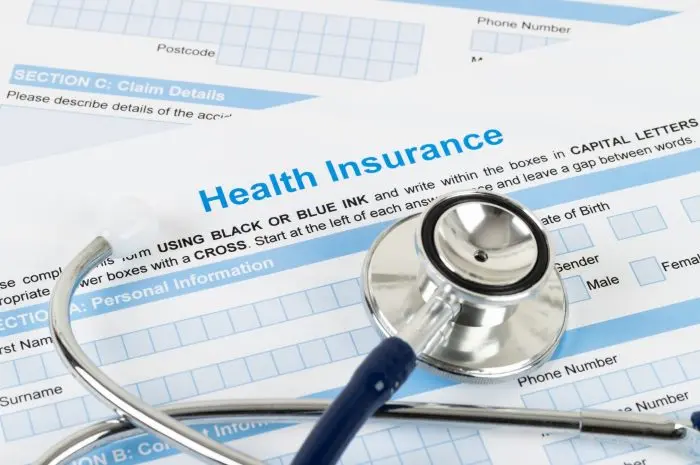How to Get Health Insurance Without a Job
Health insurance is an essential aspect of maintaining one’s well-being and ensuring access to quality healthcare services. However, for individuals without a job, obtaining health insurance may seem challenging.
In this article, we will explore various options and strategies for obtaining health insurance without a job, ensuring that you can protect yourself and your family’s health.
Understanding the Importance of Health Insurance
Health insurance plays a crucial role in providing financial protection and access to medical care. It covers a range of healthcare services, including preventive care, doctor visits, hospital stays, prescription medications, and more.
Without health insurance, individuals may face significant financial burdens in case of illness or injury. Therefore, it is crucial to explore available options for health insurance, even when unemployed.
Exploring Options for Health Insurance Without a Job
Medicaid
Medicaid is a state and federal program that provides free or low-cost health coverage to individuals and families with limited income.
Eligibility criteria vary by state, but generally, individuals with income below a certain threshold may qualify for Medicaid. It is important to check your state’s Medicaid guidelines and apply accordingly.
COBRA
The Consolidated Omnibus Budget Reconciliation Act (COBRA) allows individuals to continue their employer-sponsored health insurance coverage for a limited period after leaving their job. COBRA coverage may be an option if you recently lost your job and had employer-sponsored health insurance.
However, it is essential to consider that COBRA coverage can be expensive since you will be responsible for paying the full premium.
Affordable Care Act (ACA)
The Affordable Care Act, also known as Obamacare, established health insurance marketplaces where individuals can purchase insurance plans. These marketplaces offer a range of coverage options, and financial assistance may be available based on your income level.
You can explore the healthcare.gov website or your state’s marketplace for more information and enrollment details.
Short-Term Health Insurance
Short-term health insurance plans provide temporary coverage for specific periods, typically ranging from a few months to a year. These plans may be an option if you are experiencing a gap in coverage or need temporary insurance while seeking employment.
However, it is important to note that short-term plans may not provide comprehensive coverage and may have limitations and exclusions.
Health Insurance Marketplaces
In addition to the ACA marketplaces, some states have their own health insurance marketplaces or exchanges.
These state-specific marketplaces offer various insurance plans, and you can explore them to find suitable coverage options. Check your state’s official website or healthcare portal for more information.
Eligibility Criteria for Health Insurance Programs
When applying for health insurance without a job, it is important to understand the eligibility criteria for different programs. These criteria may include income requirements, residency requirements, and other factors that determine your eligibility for specific health insurance programs. Be sure to review and fulfill these requirements when applying for coverage.
Income requirements
Many health insurance programs consider your income when determining eligibility. Medicaid, for example, sets income thresholds based on the Federal Poverty Level (FPL). It is important to determine whether your income falls within the eligible range for the program you are applying to.
Residency requirements
Health insurance programs may have residency requirements that mandate applicants to be residents of a particular state or region. Ensure that you meet the residency criteria before applying for coverage.
Other eligibility factors
Certain health insurance programs may have additional eligibility factors, such as age, disability, pregnancy, or having dependents. Familiarize yourself with these factors to determine your eligibility for specific programs.
Applying for Health Insurance Without a Job
When applying for health insurance without a job, it is essential to follow the proper application process. Here are some steps to consider:
- Gather necessary documents: Prepare relevant documents such as identification proof, residency proof, income statements, and any other documents required by the health insurance program.
- Complete the application process: Fill out the application form accurately and provide all the necessary information. Be thorough and ensure that all details are correct.
- Seek assistance from professionals or organizations: If you find the application process complex or need guidance, you can reach out to professionals or organizations specializing in helping individuals apply for health insurance. They can provide valuable support and ensure your application is submitted correctly.
Considerations for Health Insurance Coverage
While obtaining health insurance coverage without a job is crucial, it is equally important to consider certain aspects related to the coverage itself. These considerations will help you make informed decisions about the insurance plans you choose:
Coverage limitations and exclusions
Different insurance plans have varying coverage limitations and exclusions. Read the policy documents carefully to understand what services are covered, what are the exclusions, and any limitations on coverage. This will help you assess if the plan meets your healthcare needs.
Premiums and out-of-pocket costs
Health insurance plans come with premiums that you need to pay regularly to maintain coverage. Additionally, consider the out-of-pocket costs such as deductibles, copayments, and coinsurance associated with the plan. Evaluate these costs to ensure they are affordable for your budget.
Network of healthcare providers
Check the network of healthcare providers associated with the insurance plan. Ensure that your preferred doctors, hospitals, and specialists are included in the network. Having access to a wide range of healthcare providers can ensure you receive quality care when needed.
Alternative Options for Medical Assistance
Apart from health insurance, there are alternative options available that can provide medical assistance without a job. Consider the following:
Community health clinics
Community health clinics offer affordable or free healthcare services to individuals and families who may not have health insurance.
These clinics provide primary care, preventive services, and some specialty care. Locate a community health clinic in your area and inquire about the services they offer.
Prescription assistance programs
If you require prescription medications, there are prescription assistance programs that provide discounts or free medications to individuals who meet specific criteria. These programs can help reduce the financial burden of obtaining necessary medications.
Health savings accounts (HSAs)
Health savings accounts (HSAs) are tax-advantaged accounts that allow you to save money for qualified medical expenses. If you are eligible, contributing to an HSA can provide a way to cover medical costs while enjoying tax benefits. Consult a financial advisor or healthcare professional to understand the eligibility and benefits of an HSA.
Negotiating medical bills
In cases where you receive medical services without insurance, it is possible to negotiate medical bills with healthcare providers. Many providers offer discounts or payment plans to individuals who are uninsured or facing financial hardships. Discuss your situation with the billing department or a financial counselor to explore options for reducing your medical bills.
Maintaining Health Insurance Coverage
Once you have obtained health insurance without a job, it is important to ensure that you maintain coverage to continue enjoying the benefits. Here are some tips for maintaining your health insurance:
- Make timely premium payments to avoid coverage lapses or termination.
- Report any changes in your circumstances, such as income, address, or family size, to the appropriate health insurance agency.
- Renew or update your coverage as required by the health insurance program to ensure continuous coverage.
Conclusion
Getting health insurance without a job may seem challenging, but there are various options available to protect yourself and your family’s health. By exploring programs like Medicaid, COBRA, ACA marketplaces, and short-term health insurance, you can find suitable coverage.
Additionally, considering alternative options for medical assistance and maintaining coverage will help you navigate the healthcare landscape effectively.



